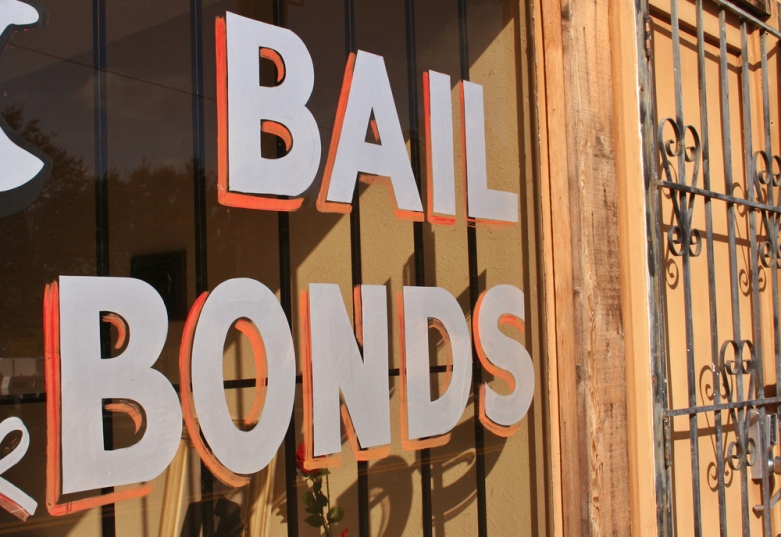Money Bail: Freedom and Justice Out of Reach for Far Too Many Californians
Page Media

Today, Assemblymember Rob Bonta (D-Oakland) and Senator Bob Hertzberg (D-Van Nuys) announced plans to champion legislation to reform California’s seriously unjust and ineffective money bail system. What’s wrong with the current system you might ask?
While many people’s understanding of how money bail works might be limited to what they’ve seen on Law and Order, money bail is actually one of the biggest problems plaguing our justice system.
Every year in California, thousands and thousands of people are jailed while they await their trial simply because they can’t afford to post bail. In a state where the median bail amount is $50,000, it’s no surprise that many people simply can’t afford to buy their freedom in this broken system.
When someone is unable to pay the total bail amount up front, they have to make an impossible choice: sit in jail while their case moves forward, plead guilty, or pay a bail bonds company a nonrefundable fee to get out – all this even if they are innocent.
Yet even going to a bail bonds company is out of reach for many.
Bail bonds companies, for-profit entities backed by insurance companies, typically charge a nonrefundable 10 percent fee. Remembering that the median bail amount in California is $50,000, would you or your family be able to come up with $5,000 to pay the 10 percent nonrefundable fee to a bail bonds company? If you answered “no” to that question, you’re not alone: a recent survey by the U.S. Federal Reserve found that 46 percent of Americans could not afford a $400 emergency expense.
Every year in California, money bail forces thousands of people to sit in jail while they await trial.
You might be able to negotiate to pay the nonrefundable fee in installments, but remember that the fee you pay a bail bonds company is nonrefundable, which is different from paying the bail amount to a court in full. (Courts give you back your money if you show up to court.) That means that people often end up having to continue paying a bail bonds company even after they are found to be innocent or the charges against them are dropped. But we’re not talking pocket change here and these nonrefundable fees force families already struggling to make ends meet to accrue insurmountable debt.
As a result, many people of very low income are forced to sit in jail while they wait for their trial. Aside from unnecessarily tearing people from their jobs, families and communities, keeping someone in jail before their trial also increases the chances that that person – even one who is innocent – will end up pleading guilty, being convicted, and receiving a longer sentence than if they had been released while their case worked its way through the courts.
This is especially the case for people of color.
People of color are already over-policed, and arrested and detained more often than their white counterparts. Money bail only intensifies this existing race and class discrimination in the justice system. Because people of color are often over-charged with crimes that carry heavier sentences, they also face higher bail amounts. As compared to white men, the bail amounts for African American men are 35 percent higher. Similarly, bail amounts for Latino men are also 19 percent higher than the amounts for white men.
Recent research also found that, compared to people who are released sometime before their trail starts, people held in jail the whole time before their trial were four times more likely to be sentenced to jail and three times more likely to be sentenced to prison.
When people are jailed before trial, they aren’t able to meet with their lawyers regularly or find witnesses to help build up a good defense in their case.
Simply put, money bail adds insult to an already injurious justice system in which being low-income or a person of color puts you at a disadvantage from the start. What’s worse is that we also know that money bail isn’t really an effective means of making sure people show up to court.
Bail bonds companies would have you believe that decreasing the use of money bail will lead to a total breakdown of our justice system – people not showing up to court and havoc all over our streets. But that’s simply not the case.
In Washington, DC, where they have significantly reduced their use of money bail, 88 percent of the people released before trial made all scheduled court appearances and weren’t re-arrested. A non-profit program in New York City posted bail for low-income defendants, with 96 percent of the people they bailed out showing up to court. In more than half of the cases, charges were dropped. Conversely, people held on similar charges who were not bailed out plead guilty 92 percent of the time.
In too many ways, the odds are stacked against people with very low incomes. Our most fundamental of rights, our freedom, is not something to be cavalierly taken away from people simply because they are unable to pay for it. This is an unacceptable status quo. We must put an end to this injustice.
Margaret Dooley-Sammuli is the Criminal Justice and Drug Policy Director for the ACLU of California.
